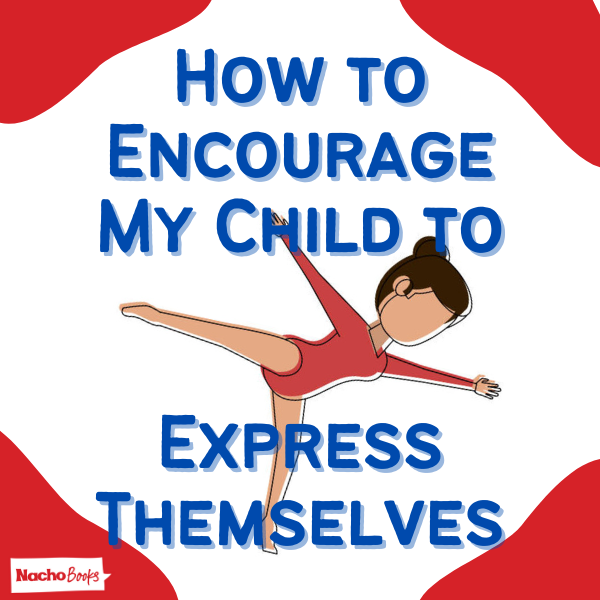Have you ever stopped and taken a moment to recognize that you exist? Alongside our self-awareness, human beings have a deep impulse for self-expression. We want to make our inner thoughts and feelings heard to those around us in order to understand our world and have our world understand us, and this is no different for a child. When a child learns how to better express themselves, they will unlock:
- Methods of releasing stress
- Problem solving skills
- Greater confidence
- Life-long learning
- Communication skills
- Relating to others better
- The joys of being heard and understood
With nothing but benefits on the horizon, here are some tips on how to encourage your child to express themselves better:
Listen to Them
It is crucial that your child feels comfortable opening up to you. When your mind is focused on not burning the pizza in the oven, transferring the clothes from the washer to the dryer, picking up your son from soccer practice, putting away toys that always seem to find their way back to the living room (and the list goes on and on…) it can be easy to answer your child’s incessant questions and stories with a distracted “sure, honey” or absentminded, “uh huh.” It’s important to make time to listen and engage with their thoughts and feelings because these moments can be an opportunity to understand your child better, to connect with them deeper, or teach them something about life. In addition, receiving recognition after expressing themselves will create a positive cycle that will encourage your child to express themselves even more.
Encourage Individuality
In this digital age of YouTube stars and Instagram influencers, it can be easy for children to want to find their worth in copying others in order to try and receive the same praise. To encourage individuality and development into their own, unique person, provide them with a variety of opportunities that allow them to make their own choices. “Mija, do you want to wear the unicorn shirt or the one with sparkles?” “Mijo, do you want the Spider-Man or the Sonic backpack?” "Should we go to the Zoo or go bowling today?" "Would you rather paint or color?" Remind them often that you love them just the way they are and that they don’t need to be just like their friends or favorite influencers in order to be accepted.
Come Alongside Their Creativity
Kids are little imagination machines to the degree that sometimes it’s hard to get them to live in reality. Nurturing your child’s creativity will give them the freedom to express themselves as they scribble a family portrait with bright colors, make up a silly song, act out the story you read to them last night, or even choose the perfect sprinkles to decorate their cupcake (creativity comes in endless forms). Maybe set aside one day of the week for the purpose of doing something creative together and watch what comes out of their imagination.
Offer a Variety of Helpful Resources
Did you know that most 5-year-olds have a vocabulary of about 10,000 words? When children are in school, they learn vocabulary at a rapid rate each year (Merritt, 2016). Double those numbers when a child is being raised bilingually and is learning vocabulary of another language at the same time. In these crucial beginning years as their minds and personalities develop, it is important to provide your child with appropriate and effective resources that help them master the basics of language (reading, writing, and speaking). A better command of a language (or multiple languages) will allow your child to express themselves in a fuller and more satisfying manner. For books that teach the fundamentals of Spanish to children, we recommend that you check out Nacho Books’ Writing/Escritura Page.
Take these tips, create more of your own, sprinkle in a little patience, and watch your child delight in self-expression as they grow day by day.




 How Do Other Countries Celebrate Halloween?
How Do Other Countries Celebrate Halloween?
 Learn more about the Patio Cultural Macon2 foundation!
Learn more about the Patio Cultural Macon2 foundation!
 ¡Conoce más sobre la fundación Patio Cultural Macon2!
¡Conoce más sobre la fundación Patio Cultural Macon2!
 Nacho's work in Colombia!
Nacho's work in Colombia!
 ¡La labor de Nacho en Colombia!
¡La labor de Nacho en Colombia!
 Christmas Traditions of Latin America
Christmas Traditions of Latin America

